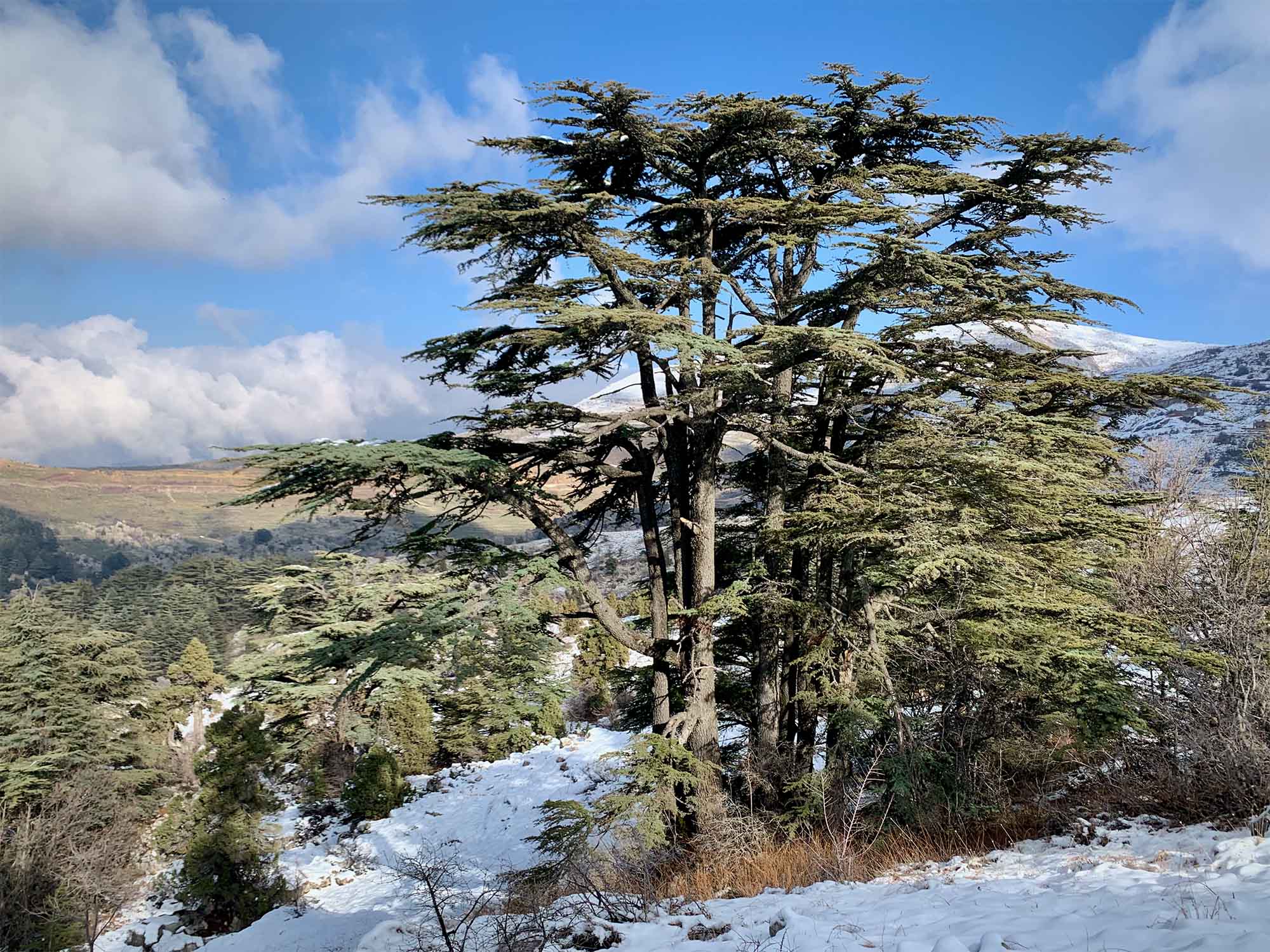Cedrus libani
 cedar of Lebanon
cedar of Lebanon
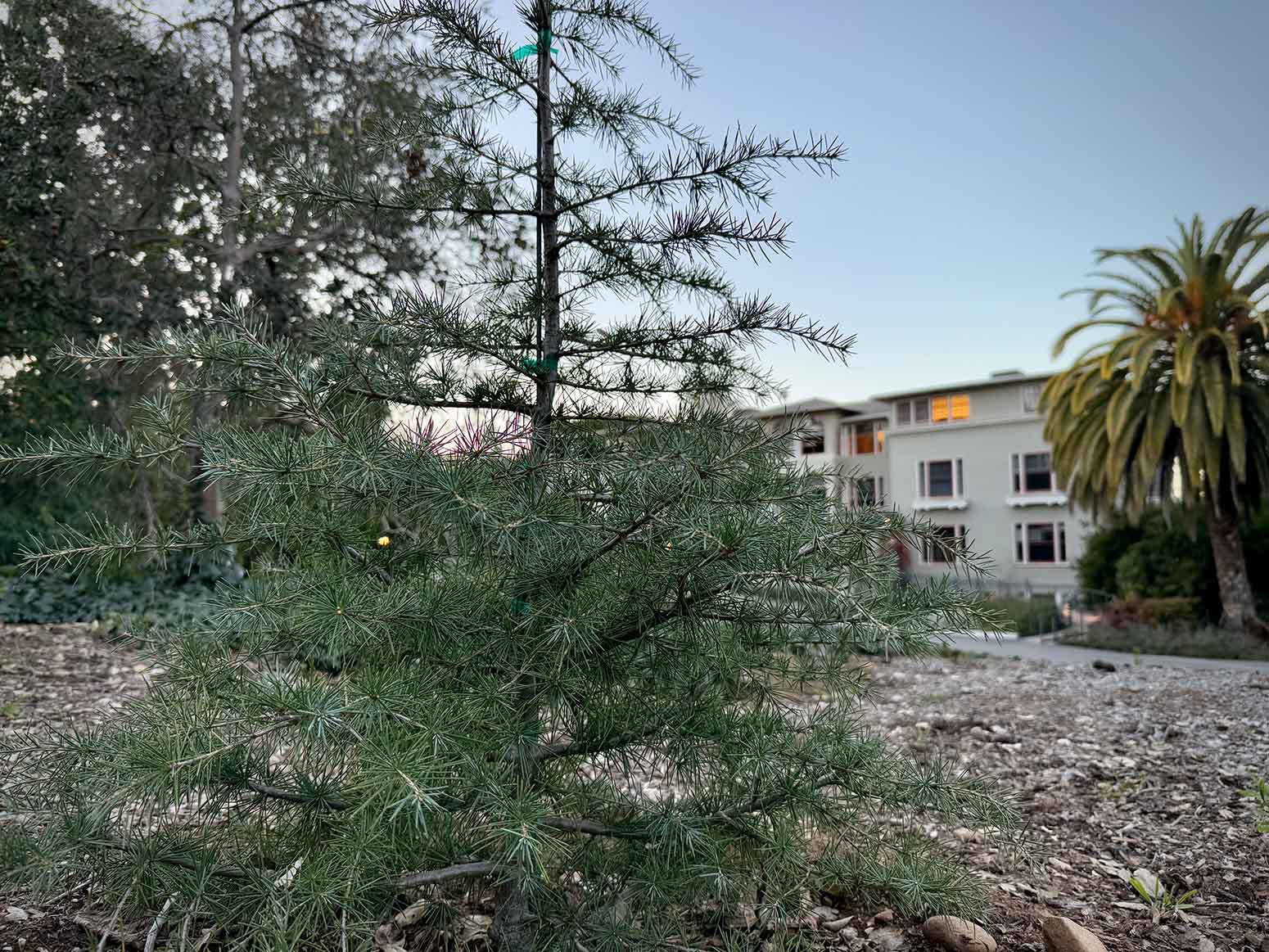
The most renowned of all cedars, extolled throughout the Old Testament, the “cedar which is in Lebanon” is exceedingly rare in cultivation in California and often mistaken for its close relative, the Atlas cedar. For millennia, the great timbers of Mount Lebanon — cedar above all, but also pine, cypress, and other softwoods — were shipped from the ports of the Levant to timber-scarce lands such as Egypt. At Byblos, logs were loaded onto ships bound for the Nile (and through that same port Egyptian papyrus reached the Greeks, who gratefully called it byblos – from which our word “Bible” ultimately derives).
About 4,600 years ago, Pharaoh Snefru is said to have imported 40 shiploads of cedar timber for ship-building and for his monumental palace doors. Cedar figured prominently in the construction of Solomon’s temple – and cedar was again brought from Lebanon for the rebuilding of its successor under the authorization of Cyrus of Persia.
The name comes from Mount Lebanon (the Semitic root means “white,” a likely allusion to its snowy peaks), though the cedar is more abundant in Turkey. Stanford’s young pair came from seed collected in an indigenous stand of some 500 trees in Turkey’s Taurus range near Arslanköy (4,840 feet elevation). They were planted in 2024 at about three feet in height: one near the east corner of Pine Avenue at the circular path around the Mausoleum, the other near the southeast corner of Kingscote Gardens, just off Lagunita Drive.
Two groups of three cedars on the west side of Meyer Green, and another trio west of Cedar Hall, were supplied as cedar of Lebanon but have proved instead to be the Atlas, with their short bluish needles in dense clusters and paler bark. A stately pair at 345 Forest Avenue in Palo Alto, planted in 1927 and reputed to be C. libani, may in fact be C. deodara. With cedars, seed provenance is everything. The specimens at the San Francisco Botanical Garden are not yet mature enough to reveal the species’ celebrated outline – dramatic, horizontally reaching limbs and flat-topped crown – a profile curiously absent from the cedar emblazoned on the Lebanese flag. Linnaeus, for his part, first placed the species among the pines as Pinus cedrus, somewhat validating those who like to think all conifers look the same.
Gallery
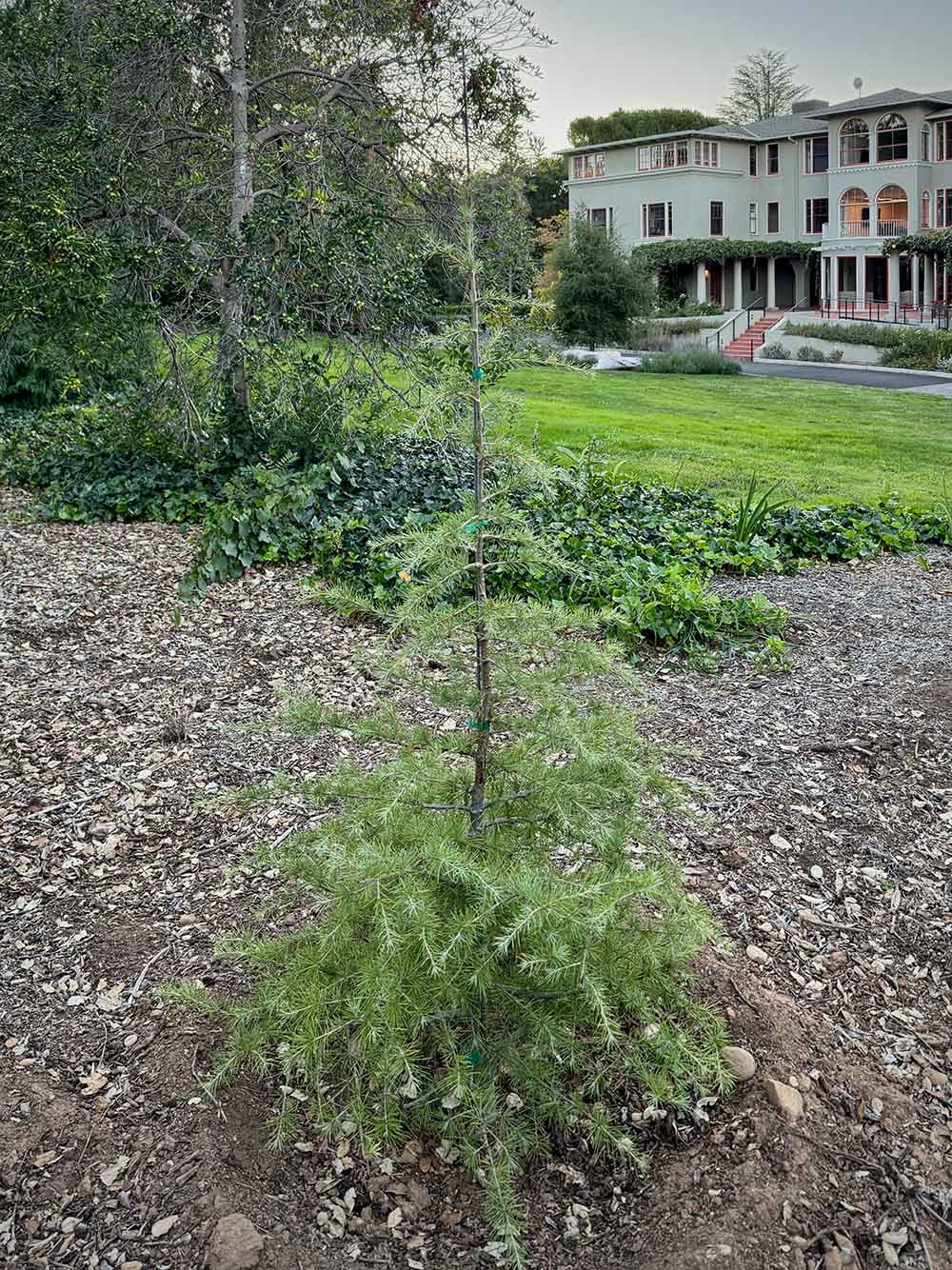
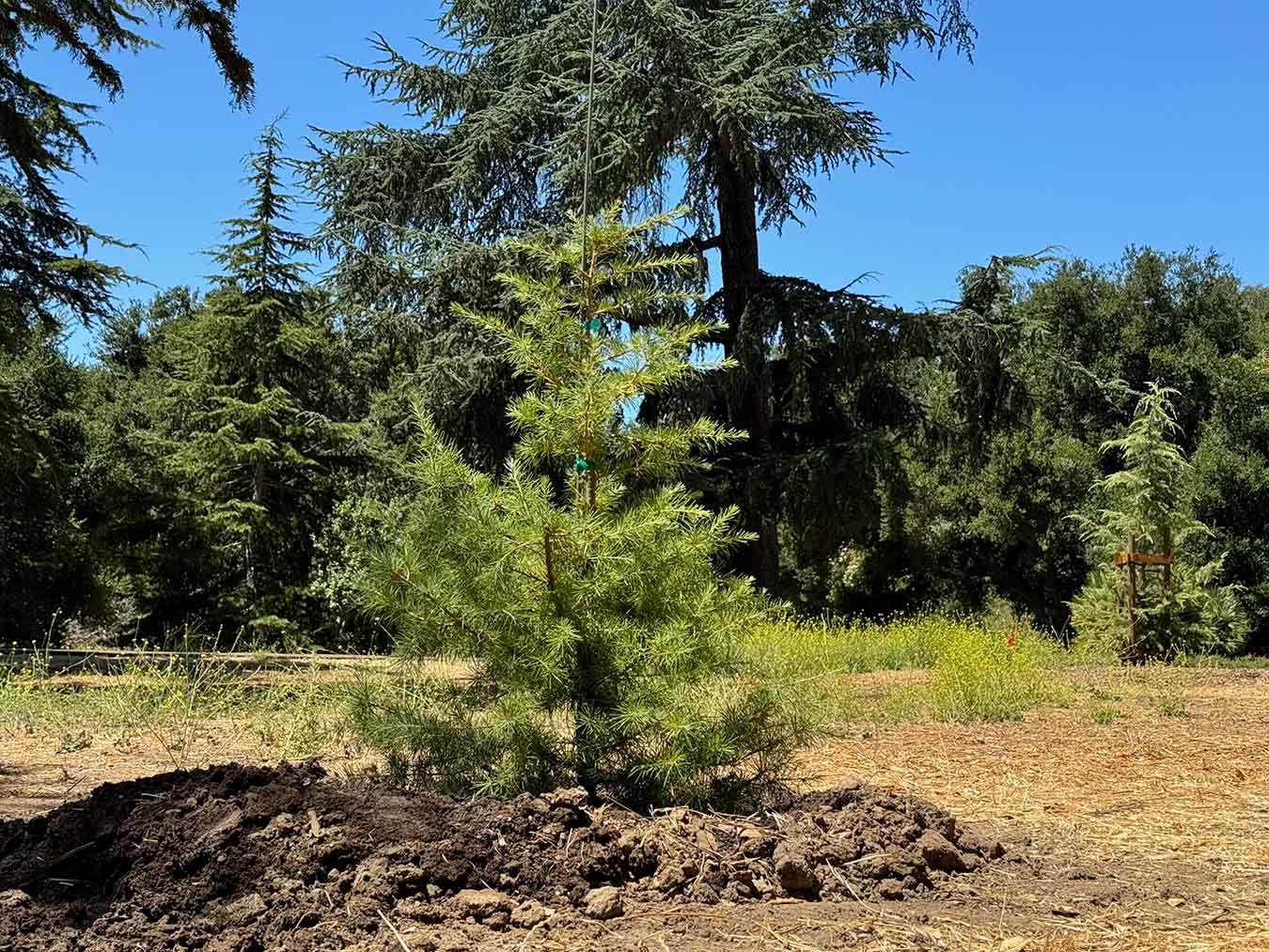
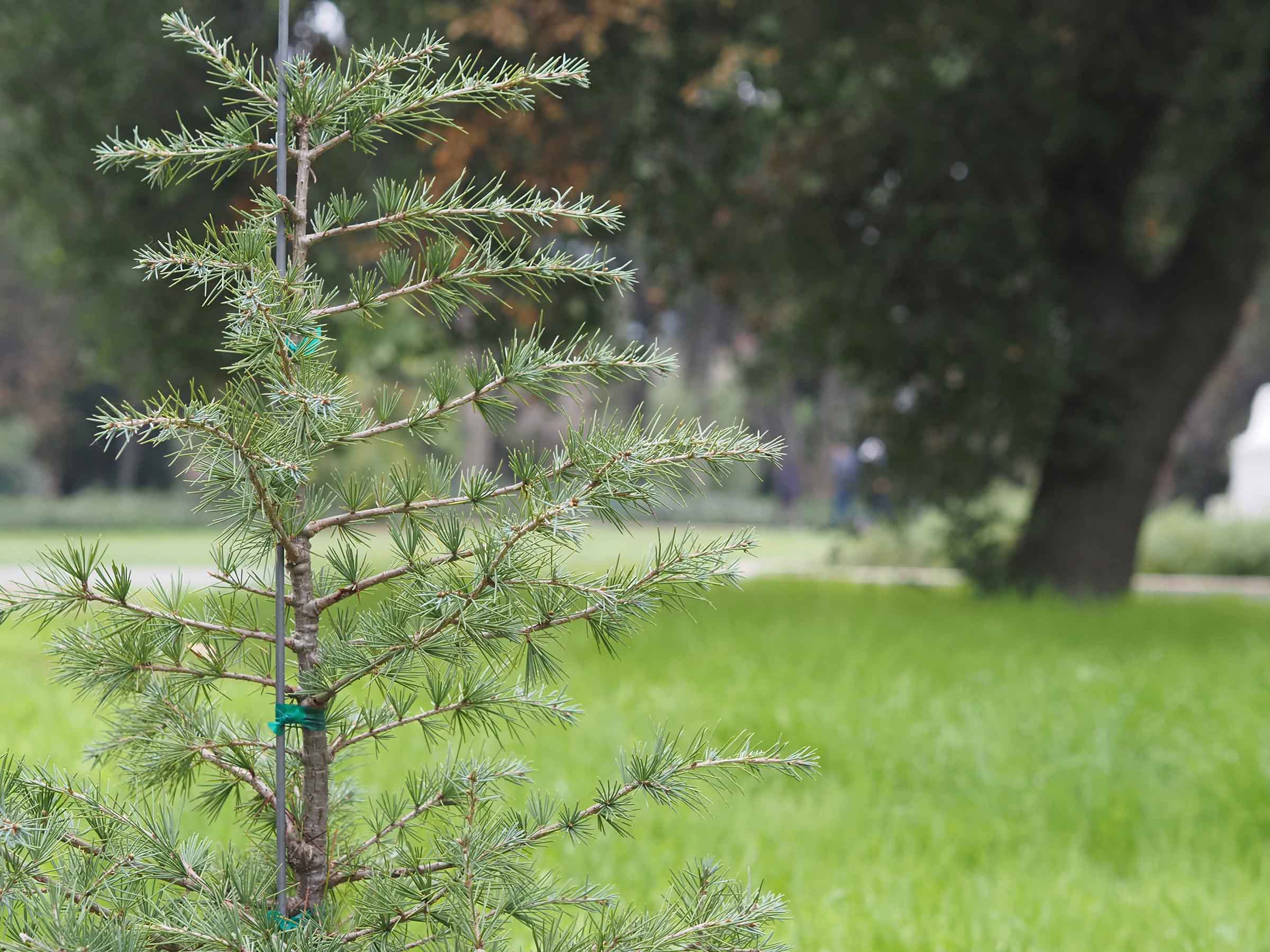
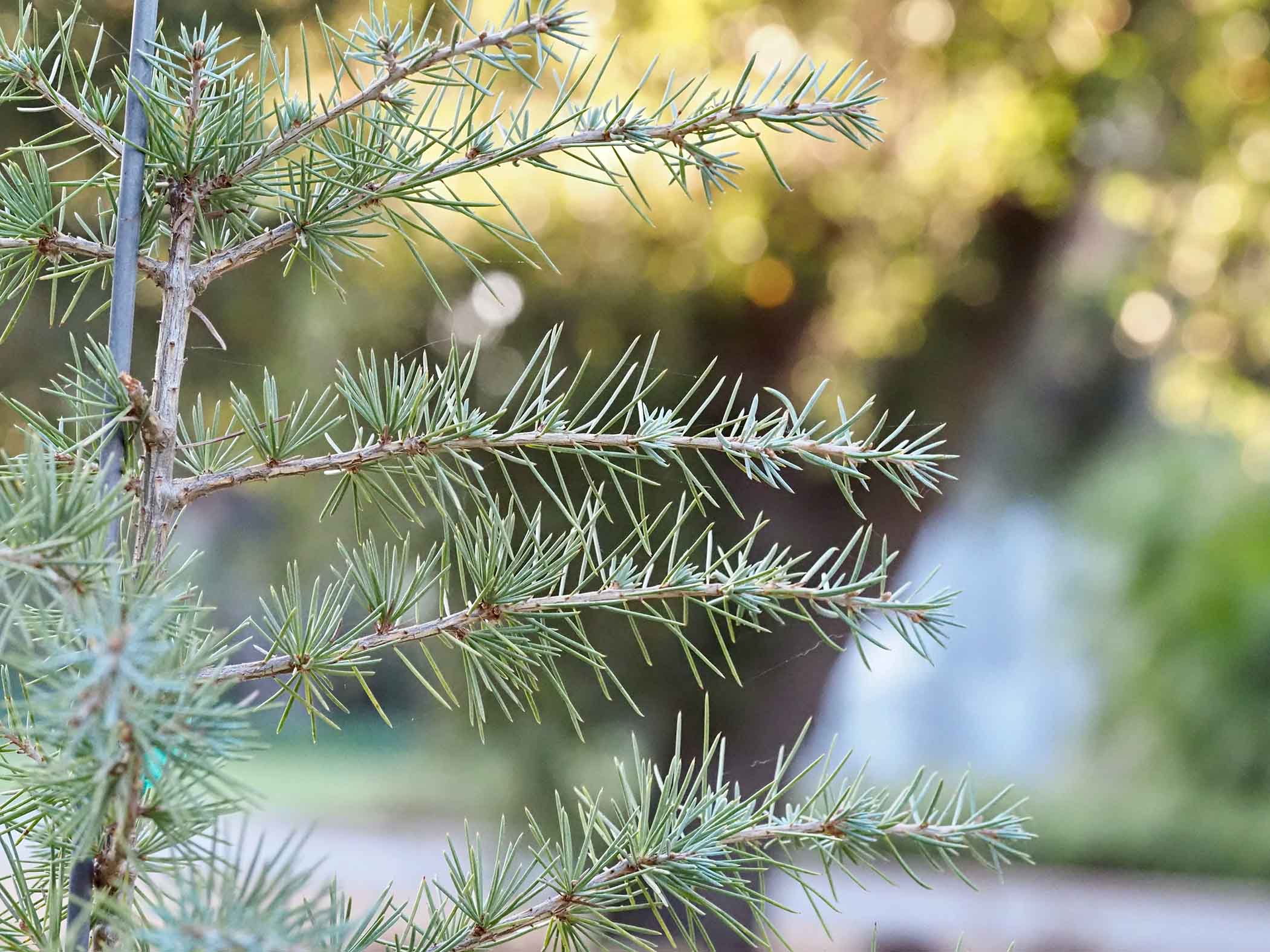
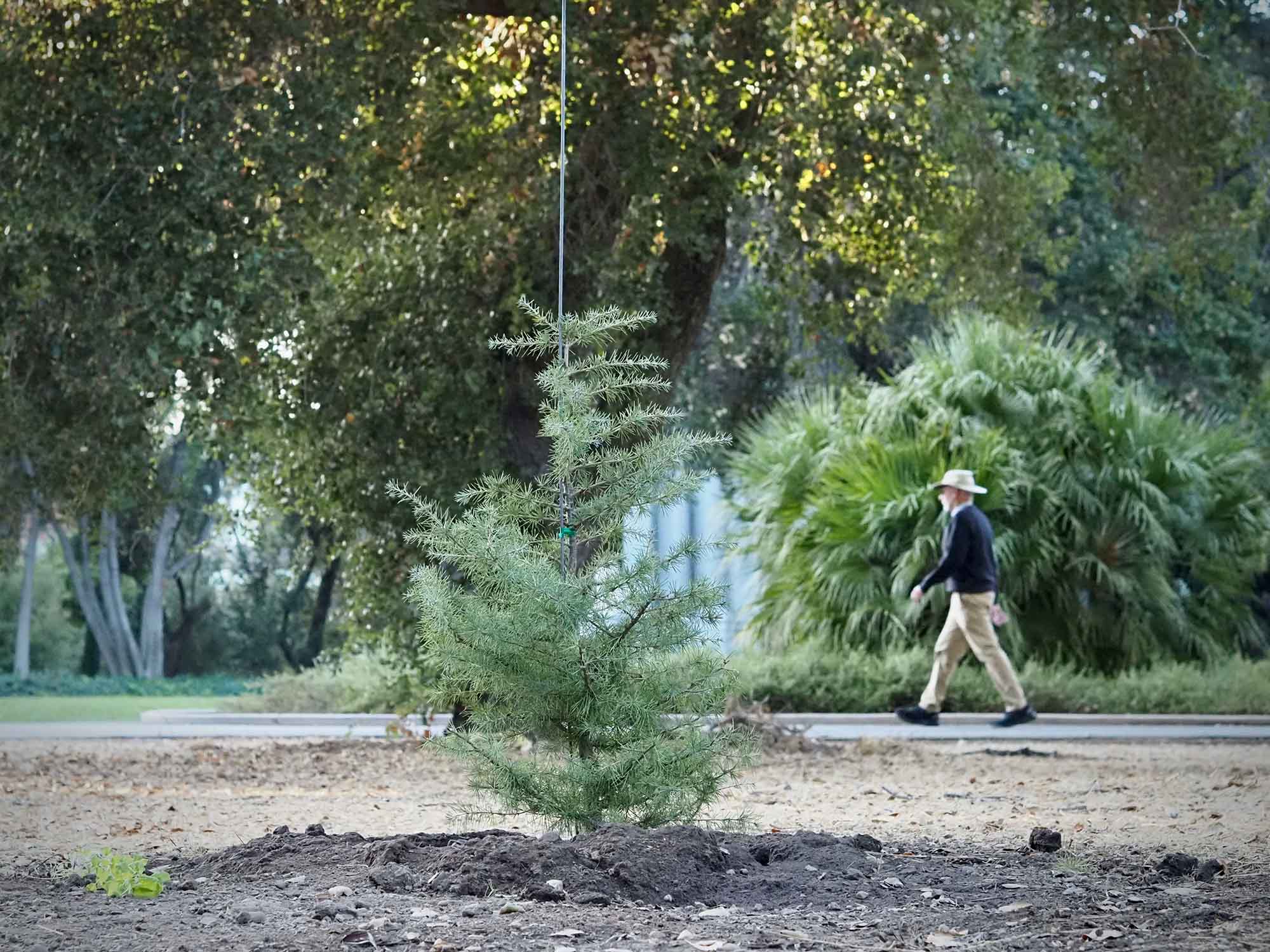
- Song of Songs 3:9 does not, as popularly thought, specify cedar as the material of Solomon’s palanquin, but simply wood from Lebanon (various translations).
- Main References for New Tree Entries.
- 1 Kings 6:9. (Re. construction of Solomon’s temple.)
- 2 Chronicles 2:3–4. (Re. Solomon’s request for cedar.)
- Ezra 3:7. (Re. cedar for rebuilding under Cyrus.)
- Meiggs, Russell. 1982. Trees and Timber in the Ancient Mediterranean World. Oxford: Clarendon Press.
- Sheffield’s Seed. 2023. Website and pers. comm., 10 Nov. (Re. provenance of Stanford’s pair of young Cedrus libani.)
- Authored Sep 2025 by Sairus Patel.

